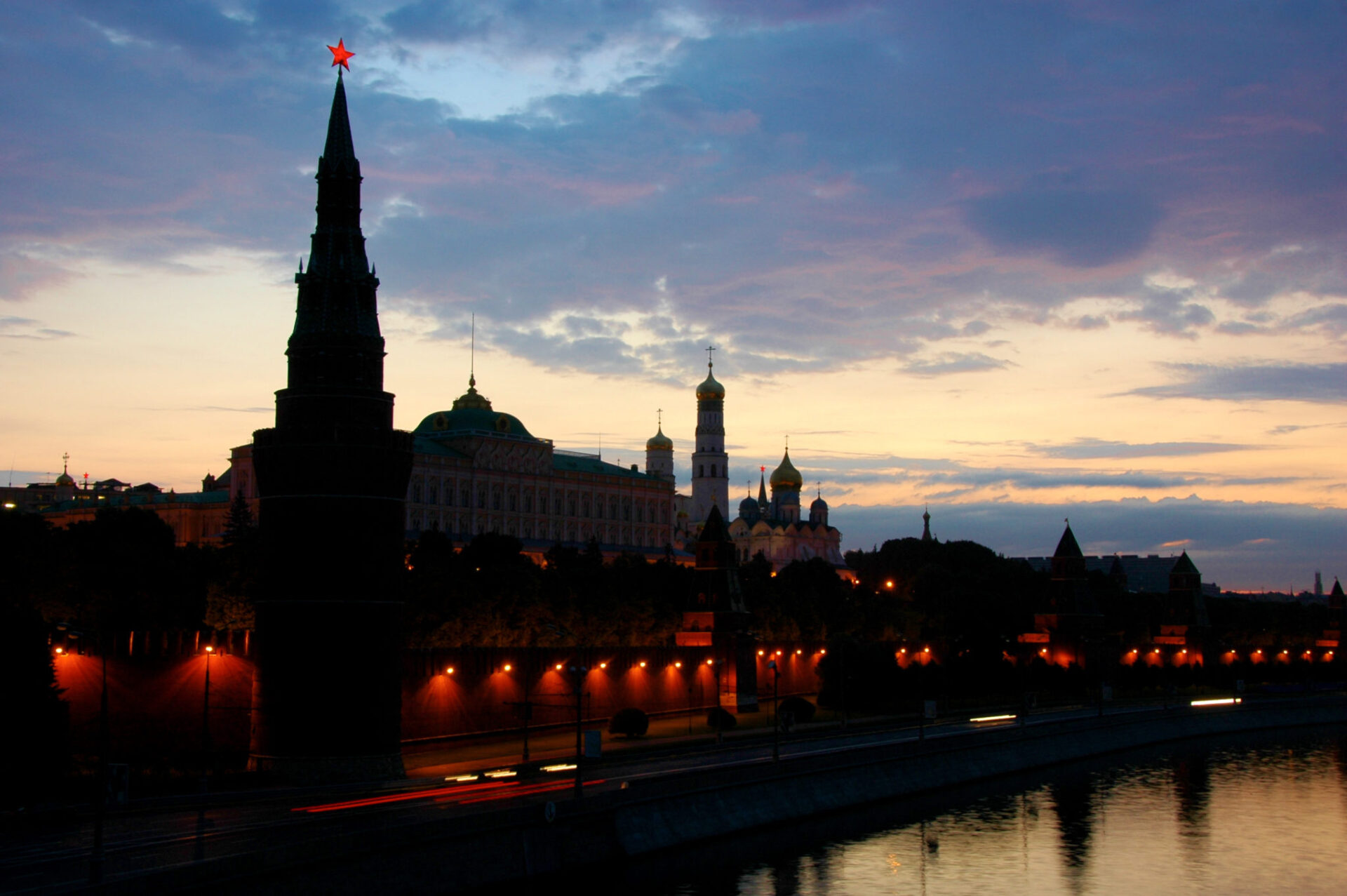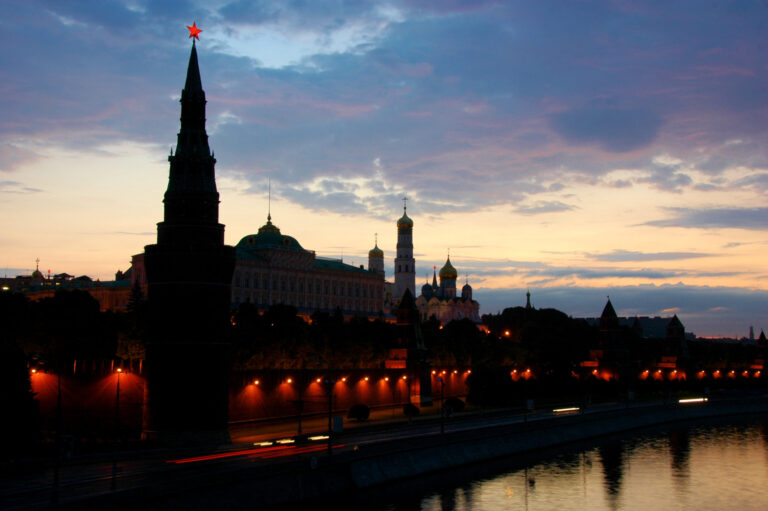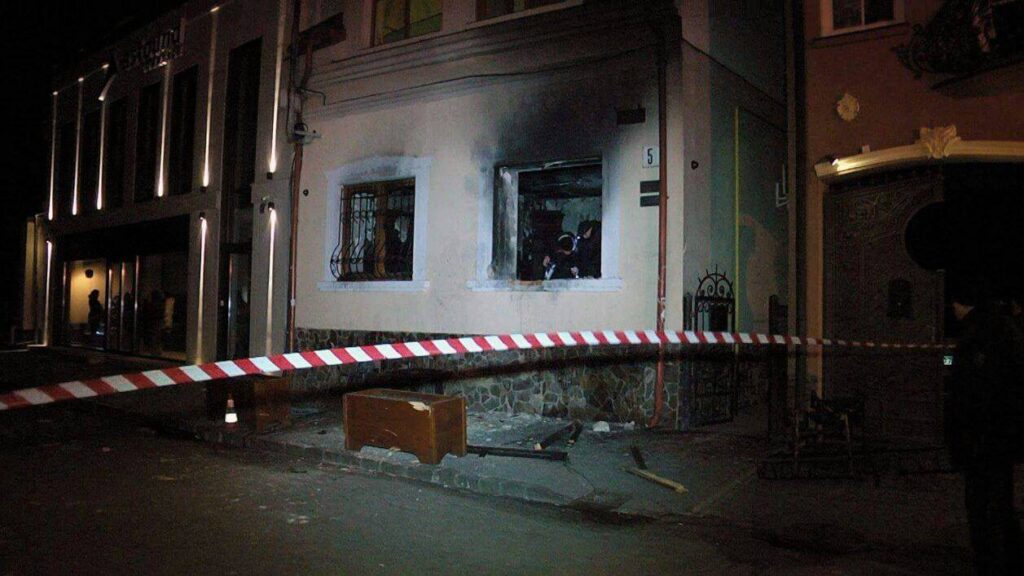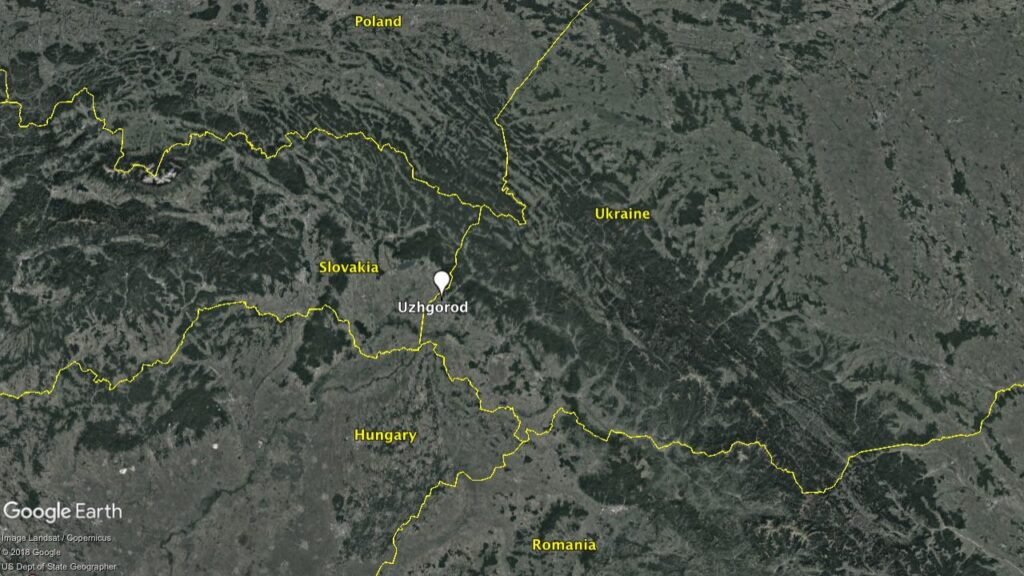“We are going to have an MP in the Bundestag who is ours, and whom we fully control” wrote Russian high officials about a German AfD member of parliament Markus Frohnmaier, as results from documents revealed by journalists of BBC, ZDF, Der Spiegel and La Repubblica. As VSquare has found out, there is also a Polish thread in the story of MP Markus Frohnmaier. His assistant, journalist Manuel Ochsenreiter allegedly ordered an arson attack on a Hungarian centre in Uzhhorod, committed by Polish nationalists in February 2018. The attack benefited Russia.
Markus Frohnmaier is a 28-year-old politician of the German right-wing party Alternative für Deutschland (AfD). The young member of the parliament was well known for his admiration for Putin’s policies even before he joined the Bundestag, as a leader of AFD’s youth organisation. Since he became an MP in September 2017, he continued to speak for the interests of the Kremlin: he advocated the abolition of sanctions against Russia and a Russian status of the Crimea.
The documents revealed by journalists of BBC, ZDF, Der Spiegel and La Repubblica in the beginning of April show that Frohnmaier was one of the elements of Kremlin’s strategy of actively influencing the policies of EU states.
On April 3rd, 2017, Petr Premyak, a former counterintelligence officer and a member of the upper House of the Russian Duma wrote to Sergiey Sokolov, a high official in the foreign affairs office of President Putin’s administration: “Dear Sergey Alexandrovich! I send you the information for the report to Alexander Leonidovich on the possible use.”
Desired: “a member of the Bundestag under absolute control”
Attached to the email is a six-page document entitled “Foreign Policy Activities”, which discusses ideas for Russia’s foreign policy, including: organisation of meetings of Russian politicians with representatives of right-wing political groups from all over Europe, media campaigns, demonstrations and pickets.
One of the last paragraphs of the document reads: “Elections to the Bundestag (24 September). Candidate: Markus Frohnmaier. Place: Bundestag. Probability of choice: high. Required: Support during the election campaign. The desired result of the project: He will be a member of the Bundestag under absolute control.”
In an interview with ZDF journalists, Premyak confirmed he was the author of the email.
The correspondence between Russian officials of April 2017 also mentions a response from Frohnmaier, expected within a week, with a “precise plan of the election campaign”.
This document was drawn up. Dated 11 April 2017, entitled: “Frohnmaier Election Campaign / Action Plan (Draft)”, the one-and-a-half page plan includes a list of topics on which the AFD candidate would focus in his campaign. They were: sanctions against Russia, the status of Crimea and the war in the East of Ukraine. The document, provided to BBC reporters in 2017 by a high officer of the special services of one of the EU countries, was prepared on behalf of the candidate for the Bundestag – Frohnmaier. The author of the document also writes about the need to support his candidate’s campaign. He says: “Besides material support, we would need media support as well […] any type of interviews, reports and opportunities to appear in the Russian media is helpful for us.”
Through his lawyer, Markus Frohnmaier replied to Der Spiegel that he did not know who the author of the document was and he had not been familiar with its contents before.
However, the document’s metadata indicate that it was written by Manuel Ochsenreiter, Frohnmaier’s associate.
A German middleman
Manuel Ochsenreiter is a German journalist, editor-in-chief of the magazine Zuerst! and Markus Frohnmeier’s assistant in the Bundestag until January 2019. Ochsenreiter is also a regular member of election observation missions in Crimea (in 2014) and in Moscow (in 2018). A regular commentator for Russia Today, a follower of Alexander Dugin’s ideology, and an opponent of the EU and NATO.
https://www.facebook.com/manuel.ochsenreiter.37/posts/120850639058788
“Based on my experiences, Ochsenreiter is the one who seems more interesting from a counter-intelligence perspective, not Frohnmeier”, a former Hungarian security officer with experience in counter-intelligence told VSquare on condition of anonymity. “Russian intelligence is known for targeting experts, advisers and aides who work in the background. Hence they can draw in foreign politicians to Russia’s sphere of influence indirectly”, the source continued.
According to the former security officer, this method has several advantages. First, Russian intelligence can avoid the first line of defense – the target country’s counter-intelligence – by not making direct contact with politicians who sometimes undergo national security clearance. Second, the targeted politician can refute allegations of being influenced by Russia with more credibility. Third, jobs and duties like experts or assistants are less monitored. “Practically, these jobs are a grey zone from a legal perspective, so hostile intelligence services tend to take advantage of it”, the former Hungarian security officer added.
When the trial of the three Polish nationalists, members of a Falanga organisation accused of setting fire to the Hungarian centre in Uzhgorod started in January 2019, one of them – Michał P. who directed the operation – pointed to Ochsenreiter as the person who ordered the arson. Ochsenreiter allegedly gave 1,500 euros to Michał P. to do the job. First, he sent 500 euros by post, stuck in a book. He gave the second part of the money to P. personally, as they met at Tegel Airport in Berlin on 7 February 2019.
The Polish connection
In February 2018, fire was set to a Hungarian minority centre in the Ukrainian city of Uzhgorod. The provocation was aimed at sparking tensions between Hungary and Ukraine. A Hungarian minority of 150 thousand people live in the area. A few days after the incident, the Polish Internal Security Agency apprehended three Polish nationals, ho set the fire, disguised as Ukrainian nationalists– two of them were members of a paramilitary organization Rifleman from Kraków. Their unit had cooperated with the Polish ministry of defense for many years, and took part in the exercises of Polish and NATO troops. All three attackers were linked with Falanga – a radical right-wing organization drawing on the traditions of the pre-war, nationalistic and anti-Semitic movement (read more about the incident in Uzhgorod in our story from June 2018).
Investigations into funding of the pro-Russian operation in Uzhgorod by Manuel Ochsenreiter, by both Polish and German public prosecutors’ offices are now underway. The German journalist rejects the charges on Facebook, calling them absurd. He thinks the turmoil around him is fabricated by secret services.
Hungarian analyst Peter Kreko, head of the Budapest-based Political Capital Institute told VSquare that the arson attack fits into a bigger picture. “We had an extensive investigation in Central Eastern Europe on the activity of the extremist nationalist organisations, and we found that since the Crimean annexation, they increasingly turned their attention towards Ukraine, and serve as a useful tool aimed at provoking bilateral conflicts between Ukraine and its neighbours”, Kreko explained. The attacks against the Hungarian center in Uzhhorod helped to deteriorate the already bitter relationship between Hungary and Ukraine, and to fuel extremists on both sides.
“This plays obviously into the hands of the Kremlin. The leaked emails of Moscow’s chief strategist Vladislav Surkov proved that a grand destabilisation strategy was laid down in 2014 aiming to achieve the autonomy of Transcarpathia and the federalisation of Ukraine through provoking conflicts between the Rusyn and Hungarian minorities and the Ukrainian far right, and using secessionist-nationalist organisations in Ukraine, Hungary, and Romania as instruments”, Kreko added.
As VSquare reported, a conflict between Budapest and Kiev was already active at that time and focused on an Ukrainian law on education which, according to the Hungarians, violates the rights of national minorities (including Hungarians in Zakarpattia) to study their native language. Polish activists of the nationalist organisation Falanga, who feigned a Ukrainian nationalist attack on the seat of a Hungarian association, added fuel to the already existing fire.
“Russian interest behind the firebombing is obvious: escalating a new ethnic tension between Hungary and Ukraine in an attempt to slow down Ukraine’s EU, and, more importantly, NATO accession. Moreover, this conflict in Western Ukraine detracts time and energy – not just by Kyiv, but by Brussels and Washington – spent on the war in Eastern Ukraine. In this sense, the Uzhhorod attack was a successful operation”, the former Hungarian security officer told VSquare.
Peter Kreko also mentions that Hungary’s Moscow-friendly government had a strange reaction to the arson attack. “Hungary already blamed the Ukrainian authorities for these attacks, did not raise a word so far about the possible involvement of Russia. It means that the Hungarian authorities not only ignore the findings of the Ukrainian investigations, but findings of the investigations of the Polish authorities as well, while, in rhetoric, Poland is Hungary’s most important ally in the EU”, the analyst told VSquare. “It seems that the Hungarian government regards good ties with Russia as more important than defending ethnic Hungarians from the Russian active measures”, Kreko added.
Web of pro-Russian activists in Central Europe
Ochsenreiter contacted P. about the arson attack on Facebook in January 2018. But Ochsenreiter and P. had first met well before that. In June 2015, Ochsenreiter came to Warsaw for a conference organised by the European Centre for Geopolitical Analysis and Xportal.pl – Falanga’s website. In addition to Ochsenreiter and Michał P., the conference was attended by a Falanga leader Bartosz Bekier and Mateusz Piskorski, accused of spying for Russia and China in 2016.
As Marcin Dul, the commander of a nationalist paramilitary group SJS 2039 from Kraków (which arsonists had links to) testified at the arsonists’ trial, Ochsenreiter also came to Kraków at that time. “We were invited to the meeting (with Ochsenreiter) by P.” said Dul in court. Several other activists of Falanga and the paramilitary group SJS were present at the meeting, which was accompanied by meetings of members of Mateusz Piskorski’s pro-Russian party Zmiana.
Ochsenreiter’s primary contact in Poland was not Michał P. but Mateusz Piskorski, currently in custody on espionage charges.
Ochsenreiter and Mateusz Piskorski knew each other, among other occasions, from an observation mission for the election in the Crimea in 2014 (the election was fully controlled by Russia). As observers, they unanimously claimed the election had proceeded flawlessly. The mission in 2017 has been covered by Suddeutsche Zeitung. Quoting a secret report of the German intelligence service BND and the Federal Office for the Protection of the Constitution, SZ claims that Piskorski is a “paid pro-Russian agitator”. According to German services, the observation mission was allegedly partially financed by the Russians, and the organisers pocketed 270,000 euros.
In the spring of 2016, Mateusz Piskorski, Manuel Ochsenreiter and Markus Frohnmaier met in Berlin. According to ZDF, they founded an organisation called German Center for Eurasian Studies at a restaurant Britzer Muhle on 1 April. Ochsenreiter became its leader, with Mateusz Piskorski as his deputy. The purpose of the organisation was “to defend the rights of man and of the citizen”. Later, on 14 April, Frohnmaier and Mateusz Piskorski meet in Yalta – at the International Economic Forum. A photo from that event is still active on Forhnmaier’s Facebook profile (Forhmnaier in the middle, Mateusz Piskorski on his right). Markus Frohnmaier claims that the organisation was wound up immediately after Mateusz Piskorski’s arrest.
https://www.facebook.com/frohnmaier/photos/a.1698757427041070/1698757553707724
In Poland, Mateusz Piskorski had been in the lead of an organisation with a similar name and purpose, the European Centre for Geopolitical Analysis, since 2007. As revealed by the reporters of Newsweek and Superwizjer TVN, ECGA received a bank transfer for 21 thousand euros from a Cyprus-based company in May 2013. The transfer was part of a giant Russian money laundering operation, dubbed “Russian Laundromat”.
When Mateusz Piskorski was detained on 17 May 2016, Polish special services – the Internal Security Agency (ISA), interrogated members of his Zmiana party.They were asked questions about their contacts with activists of pro-Russian organisations in Europe. ISA officers were particularly interested in Manuel Ochsenreiter. Der Spiegel’s information shows that German intelligence had been looking at Ochsenreiter’s activities already at that time. According to unofficial sources, Ochsenreiter was classified by the services just like Mateusz Piskorski – as a pro-Russian agitator paid by the Russians.
Peter Kreko emphasizes that there are many other examples of Russia using its Central Eastern European network of far-right activists and politicians for subversion and provocations against Ukraine. “A prime example is the Sixty-Four County Youth Movement (HVIM) in Hungary. This organisation was engaged in extremist recruitment activity beyond Hungarian borders, released statements claiming that Transcarpathia is not part of Ukraine, organised protests in support of the Donetsk People’s Republic, and called for the boycott of chocolate products produced by Petro Poroshenko’s interests”, the Hungarian analyst told VSquare.
Moreover, Kreko also mentioned that some other anti-Ukrainian false flag operations with ties to Central Eastern European pro-Kremlin activists have a very high resemblance to the arson attack in Uzhhorod. For example, Polish radicals, activists of the Congress of the New Right (KNP) aimed to provoke an ethnic conflict against the Polish minority living in Western Ukraine by attacking monuments of Bandera, Ukraine’s nationalist icon.
VSquare’s Budapest-based lead investigative editor in charge of Central European investigations, Szabolcs Panyi is also a Hungarian investigative journalist at Direkt36. He covers national security, foreign policy, and Russian and Chinese influence. He was a European Press Prize finalist in 2018 and 2021.
Konrad Szczygieł is an investigative journalist at FRONTSTORY.PL. Previously, he was a reporter at Superwizjer TVN and OKO.Press. Since 2016, he has worked with Fundacja Reporterów (Reporters Foundation). He was shortlisted for a Grand Press award (2016, 2021) and an Andrzej Woyciechowski award (2021). He is based in Warsaw.










